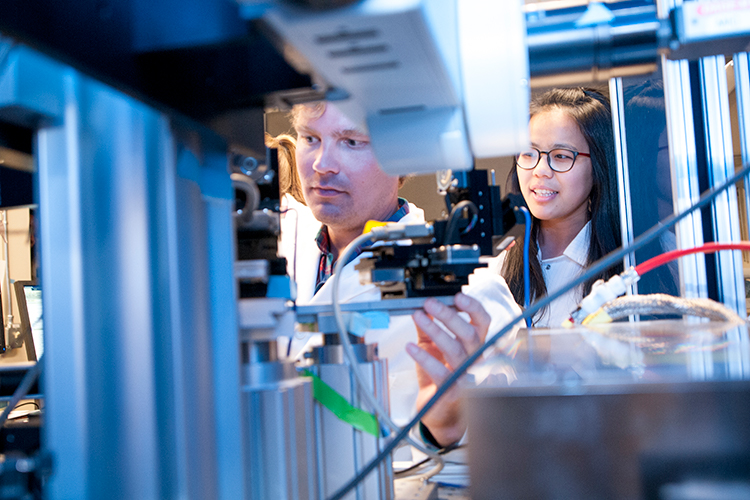Government funding increasingly fuels innovation
New study finds almost one third of U.S. patents rely on federal science investment

June 25, 2019
From the tiny electronics that power our smartphones to the new medicines that keep us well, a surprising number of the ideas and innovations that drive our economy were born not by corporations, but by federally-funded science, shows a new study led by University of California, Berkeley, researchers.
“Today, almost one third of U.S. patents rely on federal science investment — and that’s a conservative estimate,” said Lee Fleming, professor industrial engineering and operations research at UC Berkeley and the paper’s lead author. “Corporations in particular have begun to rely much more heavily on federal science.”
The study analyzed tens of millions of U.S. patents and scientific papers dating from 1926 to 2017 and found that U.S. patenting’s reliance on federal science has steady increased over the past 90 years. Those patents that arise from federally-funded science are more highly cited, renewed and novel than others, the analysis found.
Even big entrepreneurial companies are drawing on federally-funded research to power some of their big ideas, Fleming noted. For example, Google’s PageRank algorithm patent acknowledges federal support.
The findings suggest that large cuts in science funding — which the Trump administration has proposed for the third year in a row — could have a long-term cooling effect on the economy. And while congress has restored these cuts in the last two years, there may be increased budgetary pressure this year.
“Invention is relying more and more on science for inspiration, for explanation and for reducing breakthroughs to practice,” said Fleming, who also serves as faculty director of the Coleman Fung Institute for Engineering Leadership at UC Berkeley’s College of Engineering. “It also appears that U.S. inventors take greater advantage of federal research than foreign inventors. Hence, if we want American firms and startups to continue to lead the world, we should continue investing in science.”